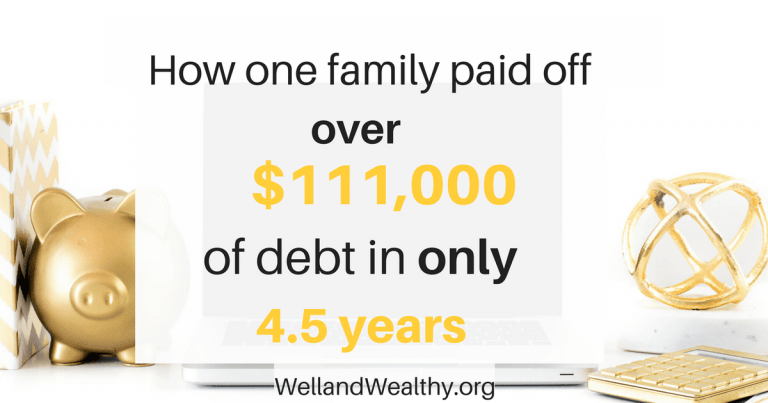10 Simple Budgeting Tips to Boost Your Mental Well-Being and Financial Wellness
Does checking your bank account make your heart race a little? Trust me, I’ve been there and totally understand those feelings. It’s amazing how much our financial wellness is tied to our overall well-being. When money’s tight, it can keep you tossing and turning at night, create tension in your closest relationships, and even affect your physical health. Let’s be honest – financial stress can feel like carrying a heavy backpack everywhere, weighing down not just you but everyone around you.
Here’s something that might make you feel less alone: a comprehensive 2021 study by the American Psychological Association revealed that an eye-opening 72% of adults in the United States have felt anxious about their finances at some point. And for our younger friends aged 18-34? That number skyrockets to nearly 90%. Pretty wild, right? These statistics highlight the crucial link between mental health and finances, emphasizing the need for better budget planning strategies and understanding the importance of budgeting.
These aren’t just random statistics – they’re real stories of people like you and me struggling with money-related emotions. This research really drives home why having a solid handle on our finances is crucial for maintaining good mental health and emotional balance. When we take positive steps toward managing our money – like creating and sticking to a budget that actually works for us – we can start clearing away that mental fog and reducing the stress that often comes along with financial uncertainty.
Think of a budget as your personal financial GPS – it helps you navigate through the sometimes confusing world of financial decision-making and gives you back that feeling of being in control. It’s like having a clear snapshot of where your income is going, which helps you feel more confident about your current situation and sets you up for a future where financial anxiety doesn’t have to be your constant companion.
You know what’s amazing? When you feel in control of your money, it’s like having a safety net that makes everything else in life feel a bit more manageable. Getting better at budgeting isn’t just about numbers – it’s about creating peace of mind that spills over into every aspect of your life. And when you combine good money habits with practices like gratitude and setting SMART goals, you’re not just improving your financial health – you’re building a foundation for better mental wellbeing, too.
Now that we’ve covered why this stuff matters so much let me share 10 Budgeting Tips to Improve Mental Well-Being and Financial Wellness I have used in my own journey. These aren’t just random suggestions – they’re tried-and-true strategies that can help you develop a healthier relationship with money and find more peace in your financial life:

1. Start with a realistic budget:
Creating a budget that reflects your real life is absolutely crucial for finding genuine financial peace. Your budget should be like your favorite comfy sweater—it needs to fit you just right, including all your regular bills and those unexpected expenses that pop up. But first, let’s address the question: what is financial well being? Simply put, it’s a state where you feel in control of your finances, can meet your current and future obligations, and have the financial freedom to make choices that allow you to enjoy life.
Let me tell you about Sarah (you might relate to her story!). Fresh out of college, she sat down to create her first real budget plan. She included everything – from her student loan payments to her rent and groceries. The relief she felt after creating a plan she could actually stick to? Absolutely priceless. It gave her hope and helped calm those middle-of-the-night money worries we all know too well.
You know what’s really interesting? A recent study by the National Endowment for Financial Education found that folks who stick to their budgets feel about 20% more secure than those who don’t make it a priority. It’s like having a cozy financial blanket wrapped around you! When you create a budget that fits your life, you’re building the foundation for smart money management and that oh-so-precious peace of mind.
2. Track every dollar:
Let’s talk about something that can be a total game-changer: tracking expenses. It’s kind of shocking, but studies from the Federal Reserve show that nearly 45% of Americans aren’t sure what’s in their bank accounts. Take Lisa’s story, for example (and trust me, we’ve all been there!). She was absolutely floored when she realized just how much she was spending on those “small” things like subscriptions and online shopping sprees.
Here’s the thing – when you’re in the dark about your spending, it’s like trying to navigate with a broken compass. The stress just keeps building up, making you feel like your finances are spinning out of control. But when Lisa started tracking her expenses (yes, every single purchase!), something amazing happened. She discovered areas where she could cut back, which freed up money for saving and debt reduction. Having this clear picture of your finances is like turning on the lights in a dark room – suddenly, everything makes so much more sense!
Think of tracking your spending like keeping a diary for your money. Every time you write down what you spend or save, you’re learning more about your financial habits. It’s these little insights that help you make choices that truly align with what matters to you, creating this beautiful cycle of better money awareness and smarter spending decisions. This practice is a key component of financial wellness, helping you develop healthy money habits and improve your overall financial health.
3. Build an emergency fund:
I know it might seem basic, but having an emergency fund is absolutely crucial for both your financial wellbeing and your peace of mind. Think of it as your financial safety net – there to catch you when life throws those unexpected curveballs your way. It’s a key component of how to save money effectively and a vital part of any comprehensive savings plan.
Here’s a reality check: a U.S. Bank report revealed that almost 60% of Americans would struggle to cover a $1,000 emergency. Take Mike’s story – when his car suddenly decided to break down, he was so grateful for his emergency fund. Instead of reaching for credit cards or falling into debt, he could handle the repairs without adding financial stress to an already stressful situation. Research shows that having enough saved to cover 3-6 months of essential expenses can significantly reduce anxiety during tough times. It’s like having a financial superpower that helps you face life’s challenges with confidence!
When you prioritize building your emergency fund, you’re not just creating financial security – you’re investing in your peace of mind, knowing you’re prepared for whatever comes your way. This is a crucial step towards financial independence and overall financial wellness.
4. Think about using a money wellness app:
In our digital age, managing money has become so much more approachable, thanks to some amazing tech tools that can transform your budgeting journey. Let me share something that really resonates – take my friend Sarah (she’s just like us!). When she discovered the YNAB app, it was like finding a financial bestie who helped her understand her spending patterns and create achievable saving goals that actually stuck!
You’re not alone in finding these tools helpful – a recent NerdWallet study showed that about 40% of app users felt more confident about their finances (how amazing is that?). And here’s something that really caught my attention: in 2020, people using budgeting apps reported feeling 33% less stressed about their money situation. It just goes to show how the right tech can turn what feels like a daunting task into something totally manageable and – dare I say it? – even fun!
When you embrace these digital tools for your financial planning, you’re essentially creating your own personal finance command center. It’s like having a super-organized friend who keeps all your money matters in check while giving you the insights you need to make better decisions. These apps can be particularly helpful for budgeting for beginners, offering guidance on how to budget money effectively and improve financial health.

5. Include “fun money” in your budget:
Here’s something we often forget when budgeting – making room for joy! Having a realistic budget means setting aside some money for things that make your heart happy. Take my journey, for example – I started putting aside $50 monthly for little adventures, whether that’s trying out that new café everyone’s talking about, catching a show, or exploring a new hobby with friends. This approach to mindful spending can actually help you stick to your budget in the long run and is a great example of financial wellness in action.
The research backs this up too! Studies consistently show that people who intentionally budget for enjoyable activities report higher levels of life satisfaction and overall wellbeing. The Financial Planning Association has found that striking this sweet spot between necessary expenses and fun pursuits helps prevent that dreaded feeling of deprivation. It’s all about creating a sustainable lifestyle that brings both joy and financial stability. Remember, including “fun money” in your budget isn’t frivolous – it’s an investment in your happiness while still being financially responsible!
6. Set clear financial goals:
Let’s talk about something that can totally transform your money journey – setting crystal-clear financial wellness goals. It’s like creating a roadmap for your dreams! Take my colleague Sarah – when she wrote down her goal to save for her dream home, it was like something clicked. Suddenly, her financial decisions had purpose and direction.
The American Society of Financial Educators found something fascinating – people who write down their financial goals are 42% more likely to achieve them compared to those who don’t. Amazing, right? Setting these goals helps reduce anxiety by giving you a clear path forward. Whether you’re dreaming of that bucket-list vacation, a new car, or planning for retirement, having specific targets helps you visualize success and motivates you to take meaningful steps toward your financial dreams.
When you regularly set and review your money goals, you create this beautiful positive feedback loop that keeps you motivated and supports your emotional wellbeing, strengthening that powerful connection between achieving goals and feeling fantastic. This is where the concept of SMART goals comes in handy – Specific, Measurable, Achievable, Relevant, and Time-bound goals can really boost your financial planning efforts and contribute to your overall financial wellness.
7. Automate Your Savings:
Let’s talk about one of my favorite money-saving tips that’s been a total game-changer – automating your savings! You know how sometimes we get caught up in the “I’ll save whatever’s left at the end of the month” trap? Well, setting up automatic savings is like having your very own financial guardian angel who makes sure your future self is taken care of, no second-guessing needed!
Take my friend Jessica’s story (it’s such an inspiration!) – she decided to set up automatic transfers to her savings account at the start of each month. Now she’s building her dream travel fund without even thinking about it! No more late-night worrying about whether she remembered to transfer money or feeling guilty about spending before saving.
Here’s something super exciting – a 2021 study by the Consumer Financial Protection Bureau discovered that people who automate their savings typically save 20% more than those who do it manually. How amazing is that? It’s like getting a little bonus just for being smart about your saving strategy! This brilliant move doesn’t just boost your savings – it frees up mental space so you can actually enjoy life and stay present in those precious moments instead of constantly stressing about money.
Plus, when you make saving automatic, you’re basically creating this wonderful positive habit that strengthens your financial muscles without requiring constant willpower (because let’s be honest, we all have days when our willpower isn’t exactly at its peak!). Over time, this steady, consistent approach leads to incredible financial security – proof that small, automated actions can create beautiful results and contribute significantly to your financial wellness!
8. Practice gratitude for what you have:
Let me share something that’s completely transformed my perspective on money – practicing gratitude! It’s like wearing rose-colored glasses that help you see the abundance already in your life. Take Alex’s journey, for instance – he started a simple gratitude practice of jotting down financial wins, even tiny ones like sticking to his monthly budget. This small shift completely revolutionized his relationship with money!
The research on this is mind-blowing – studies show that cultivating gratitude can boost life satisfaction by up to 25%! This shift in perspective doesn’t just make you feel warm and fuzzy inside – it actually helps you make better financial decisions, manage money more effectively, and reduce those nagging money worries. You start noticing all the wonderful things already present in your life, which can help curb impulse buying and promote more mindful spending habits.
When you practice financial gratitude, you’re building this amazing resilience muscle that helps you bounce back from challenges and see opportunities where you might have missed them before. It’s like having a supportive friend who always reminds you to celebrate both the big victories and those small daily wins. This practice creates this beautiful ripple effect, leading to a more positive and balanced relationship with your money overall, which is a key aspect of financial wellness.
9. Talk about money with loved ones:
Let’s be real – chatting about money with your inner circle can feel awkward at first, but it’s like having a weight lifted off your shoulders. Take Sarah, for instance. She was losing sleep over her mounting credit card debt until she finally opened up to her sister. Not only did she get some practical tips, but she also discovered her sister had overcome similar financial challenges. It’s amazing what happens when we let our guard down!
You know what’s interesting? Studies show that most of us would rather talk about our embarrassing health issues than discuss our bank accounts! But here’s the thing – when we create safe spaces to talk about money with people we trust, something magical happens. Those money worries start feeling less overwhelming, and we realize we’re not alone in this journey. Plus, these honest conversations often lead to stronger bonds and creative solutions we might never have thought of on our own.
These discussions can also be a great opportunity to learn about different aspects of financial planning, like understanding the difference between fixed expenses (those that remain constant each month, like rent) and variable expenses (which can fluctuate, like groceries or entertainment). Sharing knowledge about these concepts can help everyone involved make more informed financial decisions and improve their overall financial literacy.
10. Celebrate small wins:
Listen, your financial journey is a marathon, not a sprint, and every step forward deserves a little happy dance! Take Lisa, for example. When she finally saved her first $500 emergency fund, she treated herself to her favorite coffee shop drink – nothing extravagant, but it made her feel proud and motivated. And guess what? Psychology experts tell us that celebrating these mini-victories makes us 15% more likely to stick to our financial goals.
Whether you’ve managed to resist an impulse purchase or finally paid off that pesky store card, take a moment to acknowledge your progress. It’s like building a positive relationship with your money – each celebration reinforces good habits and makes the whole journey more enjoyable. Remember, those small victories add up to big changes over time, so don’t be shy about giving yourself a pat on the back. You’re doing great!
These celebrations can be especially motivating when you’re dealing with unexpected windfalls or making progress on long-term goals like retirement planning. Every step towards financial independence is worth recognizing and is a crucial part of your overall financial wellness journey!

Why These Tips Work
These strategies are so effective because they put you in the driver’s seat of your financial life while helping you maintain that crucial balance and resilience. When you’re equipped with the right tools and take control of your money situation, those nagging worries start to melt away. You’re replacing that overwhelming feeling of helplessness (we’ve all been there!) with confidence and capability.
Simple practices like gratitude, open communication, and clear goal-setting don’t just improve your money mindset – they create this beautiful ripple effect throughout your entire life. By weaving these practices into your daily routine, you’re building a foundation for better mental health through mindful money management and smart budgeting. These financial wellness examples demonstrate how small changes can lead to significant improvements in your overall financial health and well-being.
Conclusion
Ready to take that first step? There’s something incredibly empowering about taking control of your finances. Remember, every small action you take isn’t just helping your wallet—it’s nurturing your mind and emotional well-being, too! Understanding the financial dimension of wellness is key to achieving overall life satisfaction and reducing stress.
By following these tips and focusing on improving financial wellness, you’re not just working towards financial freedom—you’re investing in your mental health and overall quality of life. Remember, financial wellness can enhance every aspect of your life, from reducing cognitive load to increasing your sense of security and well-being. This personal financial wellness guide is just the beginning of your journey towards true financial empowerment and peace of mind. So take that first step today and start your journey towards true financial wellness and a brighter financial future!






